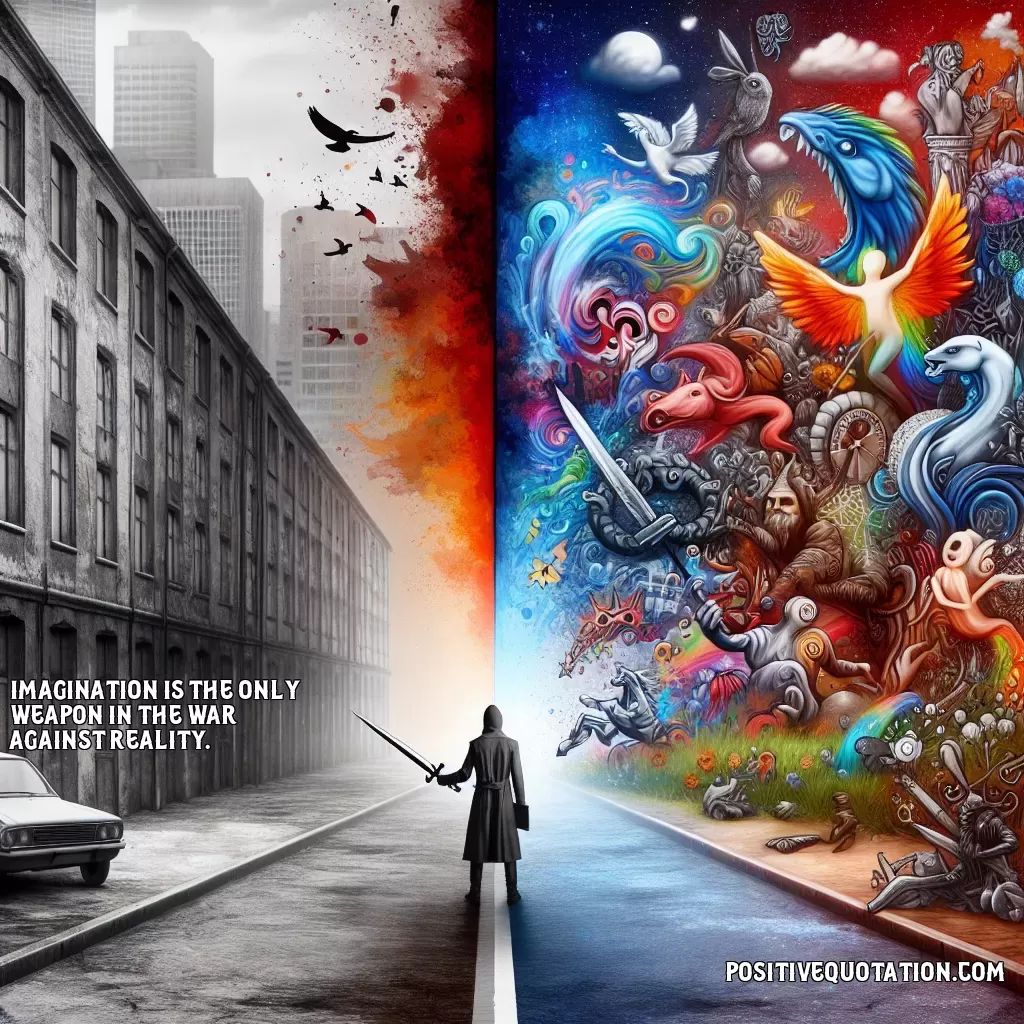
Imagination is the only weapon in the war against reality.
Author: Jules de Gaultier
👁️ 12 views
The quote "Imagination is the only weapon in the war against reality" suggests that imagination is a powerful tool for coping with or transforming the challenges and constraints imposed by reality. At its core, this statement emphasizes the unique human ability to envision possibilities beyond the confines of the present moment and the tangible world. Reality is often viewed as unyielding and governed by the rules of physics, societal norms, and day-to-day obligations that can sometimes feel limiting or oppressive. In contrast, imagination allows individuals to transcend these limits by enabling them to conceptualize new ideas, create art, innovate solutions, and dream of better futures. Essentially, it serves as a counterbalance to the rigidity of reality by permitting creativity and exploration. Moreover, imagination drives progress and innovation. Throughout history, many breakthroughs and advancements stemmed from individuals daring to imagine something different or new. For example, technological marvels like the internet or significant cultural shifts often began as imaginative ideas before being translated into reality. In a psychological or philosophical context, imagination also provides a means of escape and resilience. During difficult times, envisioning alternate realities or better circumstances can offer hope and comfort, fostering a sense of control and agency. In this light, imagination not only acts as a weapon against the harshness or mundanity of reality but also as a vital component of human resilience and creativity, underscoring its indispensable role in growth and change.
Quote By: Jules de Gaultier
Jules de Gaultier (1858-1942) was a notable French philosopher, writer, and cultural theorist known for his unique perspectives on the nature of reality and the human condition. Born in Paris, Gaultier exhibited an early affinity for literature and philosophy, pursuits that would shape his intellectual career. He was particularly influenced by the ideas of modernism and the avant-garde movement, which would permeate his works.
Gaultier is perhaps best known for his book "Le Bovarysme" published in 1902, where he explored the concept of "Bovaryism," a term derived from Gustave Flaubert's iconic character Emma Bovary. In this seminal work, Jules de Gaultier articulated how the longing for an ideal or a romantic illusion can lead individuals to discontent and, ultimately, to existential crises. Through this lens, he examined the gap between reality and human aspirations, arguing that many people live their lives in pursuit of unattainable dreams, resulting in a perpetual state of dissatisfaction.
Jules de Gaultier's impact on literature and philosophy extended beyond his writings. He was a prominent figure in the intellectual circles of Paris during the early 20th century, engaging with contemporaries such as Marcel Proust and Paul Valéry. Gaultier's ideas resonated with those grappling with the rapid changes in society, industry, and the arts during this transformative period. His philosophical inquiries into the nature of perception, illusion, and reality predated and influenced later existentialist and surrealist movements, showcasing his forward-thinking approach.
In addition to "Le Bovarysme," Jules de Gaultier published numerous essays and articles, contributing to journals and periodicals that reflected his eclectic interests in ethics, aesthetics, and the human psyche. His work, often characterized by wit and depth, invites readers to question the boundaries of reality and the constructs of societal norms.
Jules de Gaultier passed away in 1942, leaving behind a legacy that continues to inspire and provoke thought among scholars and literary enthusiasts. His exploration of the interplay between dreams and reality marks him as a distinctive voice in the landscape of French philosophy, cementing his place in the annals of intellectual thought.